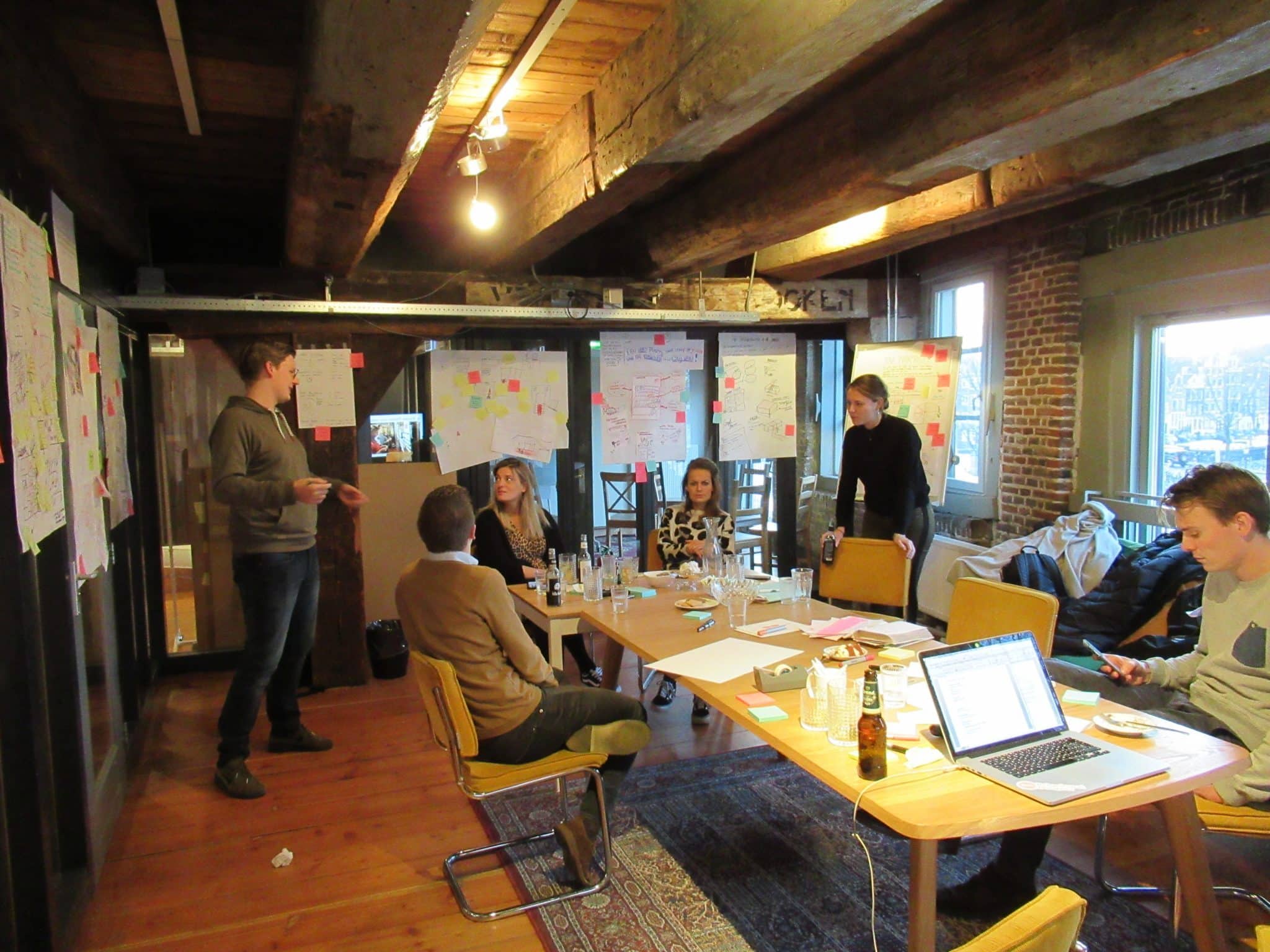
The dangerous economic myths
underlying political decision-making

Picture by Neil Moralee, shared under a Creative Common license
This is going to be a slightly longer post than usual. I want to share a couple of thoughts on a subject that fascinates me: irrationality in governing. I want to argue that billions of Euro’s are being spent by governments, based on bad economic ideas. These ideas are very pervasive, because they provide politicians with the illusion that they’re working very hard. But in reality, they’re making things worse.
How do you want your tax money to be spent?
As a tax-payer, you want to assume that your government uses its tax-income to make smart, rational decisions. You would like political debates to be about which investments would yield the highest societal return. Should we invest more in education? In infrastructure? In the military? Should we invest more in stimulating entrepreneurs to develop thriving businesses that generate jobs? Or should we focus more on redistributing wealth to encourage the poorest to get out of poverty? Should we accelerate spending in green energy, or is it better to remain addicted to burning cheap fossil fuels?
Spending billions based on irrationality
Your average Western government has to make a yearly decision on how to spend billions of Euros, Pounds or Dollars. So you want that decision to be based on evidence and facts. You don’t want it to be based on irrationality.
The problem is: this is how governments think.
In the book “Money and Government: The past and future of economics“, History Professor – and Keynes biographer – Robert Skidelsky argues very eloquently that governments worldwide use bad economics to make big decisions on government spending. And some problematic myths form the foundation of these lousy decisions.
Behavioural Design is the missing layer
Join our Behavioural Design Academy and learn how to positively influence minds and shape behaviour
Myth 1: Whenever possible, leave things to the market.
The underlying idea is that governments are not productive and bureaucratic, whereas markets tend to create increasingly better service for less money. This cliche is very pervasive and very wrong. Mariana Mazzucato demonstrates in “The Entrepreneurial State” that every piece of innovation that sits within an iPhone has been funded and developed with governmental funding. And vice versa: Markets have a deep tendency towards monopolies, profit maximization and obsession with shareholder value. This market tendency becomes problematic when it concerns critical services like health care and public transport.
Myth 2: Governments need to be prudent with money
Our Dutch government loves to compliment itself with having one of the best budgets in the world. Our national debt is rapidly decreasing due to the disciplined cost-cutting efforts of our government. Every European government decided that the best answer to the financial crisis was austerity. Sounds reasonable. If you’re in debt, you have to stop spending and start paying back. But ‘reasonable’ is not the same as ‘rational’. The rational thing to do to prevent the economy from further contracting, as many economists have argued, is precisely the opposite: increase spending. Economies are not the same as households. The reason why this myth is so powerful is that there’s a lot of signalling power in it: Being strict on the budget allows politicians to signal that they are working hard and responsible.
Two fascinating stories illustrate the point how wrong this myth is:
- Belgium suffered far less from the financial crisis than other Western-European countries. The Reason: They weren’t able to form a government for more than 1,5 year – rewarded with a Guinness World Record mention – so they didn’t have the opportunity to make stupid decisions.
- Portugal, one of the worst economies in Europe defied the European Austerity-doctrine and started investing in wages, pensions and work. To everyone’s surprise, it quickly became one of the best-performing economies in Europe. Read this background article: “No Alternative to Austerity? That lie has now been nailed“.
Myth 3: There’s no magic money tree (spoiler: there is)
In an excellent essay on Robert Skidelsky, David Graeben shares a shocking statistic: Almost 85% of all Members of Parliament in the UK has no clue about how money is created. And yet they have to decide upon billions, even trillions of Pounds/Euros/Dollars. He writes:
“There is no magic money tree,” as Theresa May put it during the snap election of 2017—virtually the only memorable line from one of the most lackluster campaigns in British history. The phrase has been repeated endlessly in the media, whenever someone asks why the UK is the only country in Western Europe that charges university tuition, or whether it is really necessary to have quite so many people sleeping on the streets.
The truly extraordinary thing about May’s phrase is that it isn’t true. There are plenty of magic money trees in Britain, as there are in any developed economy. They are called “banks.” Since modern money is simply credit, banks can and do create money literally out of nothing, simply by making loans. Almost all of the money circulating in Britain at the moment is bank-created in this way. Not only is the public largely unaware of this, but a recent survey by the British research group Positive Money discovered that an astounding 85 percent of members of Parliament had no idea where money really came from (most appeared to be under the impression that it was produced by the Royal Mint)”
Because nobody knows how money is created, Richard Werner, a German Economist, decided to go and find it out for himself, by applying for a job at a bank. To his disbelief, he discovered that bank tellers don’t balance out the loans and mortgages they issue against a reserve. They simply create the money out of thin air and expect it to be paid back with interest.
What happens when accountants rule the country
So, if banks can create money out of thin air, purely based on the confidence that it will return one day with interest, why couldn’t governments do this? It’s called investing. The big crisis of today is a crisis of imagination. Governments have come to think of themselves only in terms of accountants, or as the instance that only takes money and prosperity away instead of creating it.
It reminds me of my own experience with accountants years ago. Our accountants always used to be very proud and satisfied when they looked at the quarterly numbers. In the mind of the accountant, a great company is a company that performs well on a balance sheet. I hated these conversations. I still do. Because what accountants don’t see is that an excellent looking balance-sheet can mask all kinds of deep problems: terrible clients, 80-hours work weeks, a significant dependency on junior staff, unhealthy competition, etc.
An accountant could be looking at a company that is terminally ill, and still think it’s doing great. And since they talk numbers and spreadsheets, I tended to think they knew what they’re talking about. You don’t need much imagination that the same thing is going on on a government level. Dutch politicians recently lamented that they are performing well, and yet people keep being dissatisfied and disappointed. Voters are such ungrateful bastards. 🙂
Tom De Bruyne, February 2020.
Read more
More Behavioural Design Blogs on society, government and politics:
- The disastrous behaviour that triggered Chernobyl – how the USSR shaped the behaviour that triggered the biggest nuclear disaster in history
- The Behavioural Design of the economy: on incentives and rewards
- How to influence those in power (a tribute to Richard Rorty)
- Fascinating framing wars in the hearing of Superior Court Judge Candidate Brett Kavanaugh (not that it mattered)
Or watch the complete overview of our blogs on behavioural design.
Or contact me: [email protected].






Learn how to make the science of influence work for you
Join our Behavioural Design Academy and master the skills to shape minds and influence behaviour. We trained people over 30+ countries and have a 9,2 satisfaction rate. Check out our free brochure. Don’t miss out on making your growth a success.


